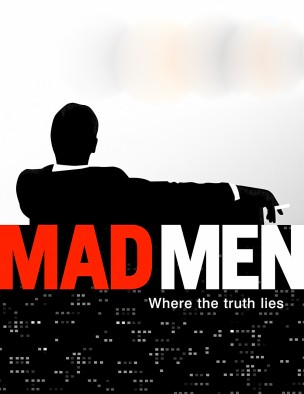
“I’m supposed to tell you you missed your flight,” Rachel Menken (Maggie Siff) tells Don Draper (the one and only Jon Hamm) in a dream. And this is how “Mad Men” begins its final stretch: leaving Don behind.
“Mad Men,” which had been AMC’s flagship since before “Breaking Bad” even premiered, has explored the 1960s for eight years and has been recognized as a television milestone in the process. It is known for its memorable advertising pitches, its feminist commentary on a sexist setting, and its powerhouse cast. But now the show’s final seven episodes have entered 1970, and if the mustaches are any indication, change has come. Season “7B’s” premiere, “Severance,” picks up in a far different place than where 7A left off. Don keeps himself busy casting beautiful women for his latest commercial as Peggy Lee’s “Is That All There Is?” plays all-to-fittingly in the background.
If the first half of season seven (which aired in Spring 2014) looked to the future amidst its computers and regime changes, the final episodes now turn back to look at the past. Don hallucinates Rachel, his first main affair of the show, whose sudden passing affects him deeply. Other characters look to their own pasts in other ways. Ken Cosgrove (Aaron Staton), known in recent seasons for his eyepatch, reconsiders quitting advertising and writing that novel for the first time in years. Joan Harris (Christina Hendricks), with her newfound riches, returns to the clothing store she once worked at, beaming as she buys all that she pleases. And Peggy Olson (Elizabeth Moss) reexamines her love life. “I’ve tried new fashioned,” she protests to a new date, echoing the disastrous, more “modern” relationships she’s held in the past.
Many notable characters are absent from the premiere, which is understandable given how much plot the episode goes through. Three characters in particular cast long shadows on the episode despite not being seen: Betty Francis (January Jones), Megan Calvet (Jessica Paré), and Sally Draper (Kiernan Shipka). Don makes little mention of his ex-wives or daughter, but their presence is certainly felt. Ken Cosgrove, for the first time in quite a while, has a major plot in this episode, only to receive a sort of bittersweet closure to the character. Ken finally has a job superior to the hostile workplace that is SC&P, but it is not the life away from advertising that he sought.
It is with Ken, more than anyone else in the episode, that “Severance” feels like it is pushing the show towards a conclusion. “Mad Men” has been giving closure to its characters’ story arcs in various forms as it has slowly crawled to its finale. Burt Cooper’s (Robert Morse) song and dance number in the previous finale, “Waterloo,” is certainly hard to top. But Ken Cosgrove’s story is the next to end, and while he may very well show up again before the finale, his trajectory is set. Matthew Weiner ’87, episode writer and series creator, is meticulously tying up loose ends one character at a time.
At the same time, he’s not afraid to stir up new conflicts in the eleventh hour. One of the show’s most vibrant relationships, Peggy and Joan, is once again thrown into turmoil during an especially hostile elevator ride. After both characters are subjected to sexual harassment that is extreme even in the world of “Mad Men,” they lash out at each other rather than their chauvinist business partners. Peggy is resentful of how Joan has used her looks to become a business partner, and Joan is resentful of how Peggy has gained the professional respectability that she lacks. Neither leaves the conversation satisfied, and neither seems nearly as fulfilled as they did at the end of the last season.
Other fan favorites Pete Campbell (Vincent Kartheiser) and Roger Sterling (John Slattery) are only small players in the episode, but both have their moments. Pete, in spectacular fashion, complains about how slowly he’s receiving his millions, while Roger has learned that he can still get away with saying anything no matter how terrible his facial hair is.
The episode ends as so many other “Mad Men” episodes do: with Don Draper sad and alone in contemplation. This is not the first time the loss of a figure from his past has deeply affected him. His brother and the original Mrs. Draper have elicited similar reactions. But Rachel Menken was never family to Don. She was simply another “other woman,” many of whom appeared before and have come and gone since. Rachel’s loss comes just off the heels of Don’s second divorce, and while he has no shortage of women in his life, Draper is as lonely as ever. He mourns in the only way he knows how: by having sex with a waitress that looks vaguely like Rachel in the back of an alley. Like most sex on “Mad Men,” the sequence is hauntingly impersonal and only gets more unsettling as it goes on. And with Don’s other romantic entanglement of the episode ending with red wine spilling on his carpet (in a fashion that cannot help but feel symbolic), one can’t help but worry about his future.
In the final stretch, “Mad Men” continues to raise questions about its future that are nigh impossible to answer. How much sadder can Don Draper get? Will Joan ever be happy? What will the final memorable pitch be? Will it be from Peggy? Why did the show skip Woodstock? Will Sally live a healthy life after her tumultuous upbringing? Will someone call Harry Crane something funnier than “Mr. Potato Head”? What song will the show-ending montage be set to? Will the gun that Pete bought in season 1 ever actually go off and accidentally kill someone? The answers will be known in fewer than six weeks, and that scariest severance of all.


Leave a Reply